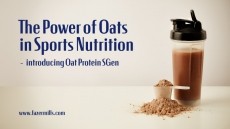Vegetable-rich low-carb cuts heart disease risk, says study
increase the risk of heart disease, says new research from Harvard
- and if vegetables rather than meat are the source of fat and
protein then the risk of heart disease may be cut by 30 per cent.
Low carbohydrate diets, high in protein and fat, have lost popularity amongst the public with critics saying that the approach puts followers at a higher risk of clogged arteries and heart attack in the long-term.
But the new research, published in the prestigious New England Journal of Medicine (Vol. 355, pp. 1991-2002), reports that, after evaluating data collected over 20 years on 82,802 women, that there is no link between low-carb diets and an increased risk of coronary heart disease (CHD).
"Our findings suggest that diets lower in carbohydrates and higher in protein and fat are not associated with increased risk of coronary heart disease in women," wrote lead author Thomas Halton from Harvard School of Public Health.
The results, while they indicate no risk with the diet, do not show a positive effect on heart health, said Halton in a statement.
"This study suggests that neither a low-fat dietary pattern nor a typical low-carbohydrate dietary pattern is ideal with regards to risk of CHD; both have similar risks. However, if a diet moderately lower in carbohydrates is followed, with a focus on vegetable sources of fat and protein, there may be a benefit for heart disease," he said.
Indeed, the authors found that, when vegetable sources of fat and protein were chosen instead of animal sources, the low-carb-diet score was associated with a 30 per cent lower risk of CHD - the cause of 20 per cent of deaths in the US and 17 per cent of deaths in Europe.
The researchers used dietary data from the Nurses' Health Study (started in 1976), collected by validated food frequency questionnaires (FFQ). After 20 years of follow-up, Halton and his colleagues report that 1994 cases of CHD were recorded.
After adjusting for potential confounding factors, such as age, BMI, smoking status, physical activity levels, multivitamin use, and so on, the researchers report that the difference between women with the highest adherence to a low-carb diet (highest fat and protein intake and lowest carbohydrate intake) had no statistically difference in the risk of CHD than those who did not consume a low-carb diet (lowest fat and protein intake and highest carbohydrate intake).
The Harvard researchers also considered the relative CHD risk as a function of the percentages of energy from carbohydrate, animal protein and animal fat, or from carbohydrate, vegetable protein and vegetable fat.
For those who consumed protein and fat from animal sources, no significant difference in relative CHD risk was observed, regardless of carbohydrate consumption.
However, the women who consumed protein and fat from predominantly animal sources and who adhered most closely to the low-carb diet, the relative risk of coronary heart disease was cut by 30 per cent, compared to those who followed a more low-fat-type diet.
"When vegetable sources of fat and protein were chosen, the low-carbohydrate-diet score was associated with a moderately lower risk of coronary heat disease than when animal sources were chosen," the researchers said.
Also, they note that adherence to the low-carb diet had no effect on body weight.
Senior author Frank Hu added a note of caution, saying that the results did not mean people should "load [their] plate with steak and bacon."
"One likely explanation that we did not see increased risk of CHD with low-carbohydrate diets is that the adverse effects of animal products might be counterbalanced by reducing refined carbohydrates. The quality of fat and carbohydrate is more important than quantity. A heart-healthy diet should embrace healthy types of fat and carbohydrates," he said.
Indeed, the authors did note a link between glycaemic load and CHD. The use of glycaemic index (GI) ranks carbohydrates according to their ability to affect blood glucose. To measure of the quality and quantity of carbohydrate intake, the concept of glycaemic load (GL) was created.
"A low-carbohydrate diet tends to have a lower dietary glycaemic index and glycaemic load than a high-carbohydrate diet," explained the researchers.
"We found that the direct association between glycaemic load and coronary heart disease was much stronger than the association between carbohydrate and coronary heart disease, probably because glycaemic load reflects both the quantity and quality of carbohydrates," they said.
Other criticisms of the low-carb diet, like the effects on bone health, kidney function, and a decrease in fibre intake were not investigated, said the researchers. Halton and colleagues called for longer-term investigations on the effects of low-carb, high-protein diets on kidney function, especially for people with poor kidney function.
In terms of bone health, however, a recent study, published in the journal Osteoporosis International (Vol. 17, pp. 1398-1403), reported that 15 volunteers eating a low-carb diet for three months did not have higher levels of bone turnover markers than the 15 controls eating a normal diet.
Concerns were raised since consumption of high-protein diets alters the body's acid balance, which could lead to increased bone turnover (bone depletion is faster than formation).











